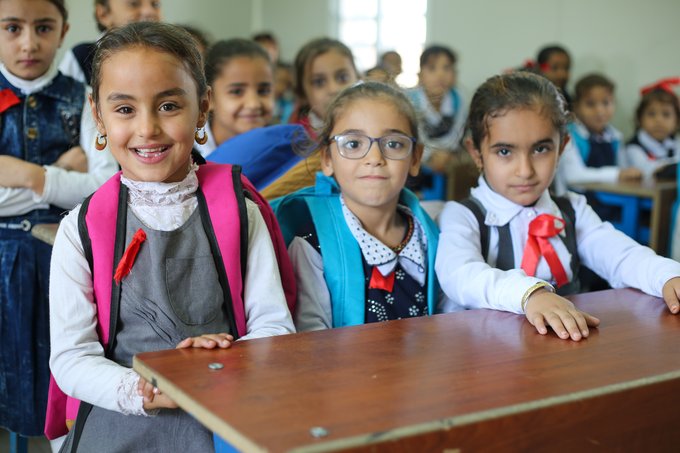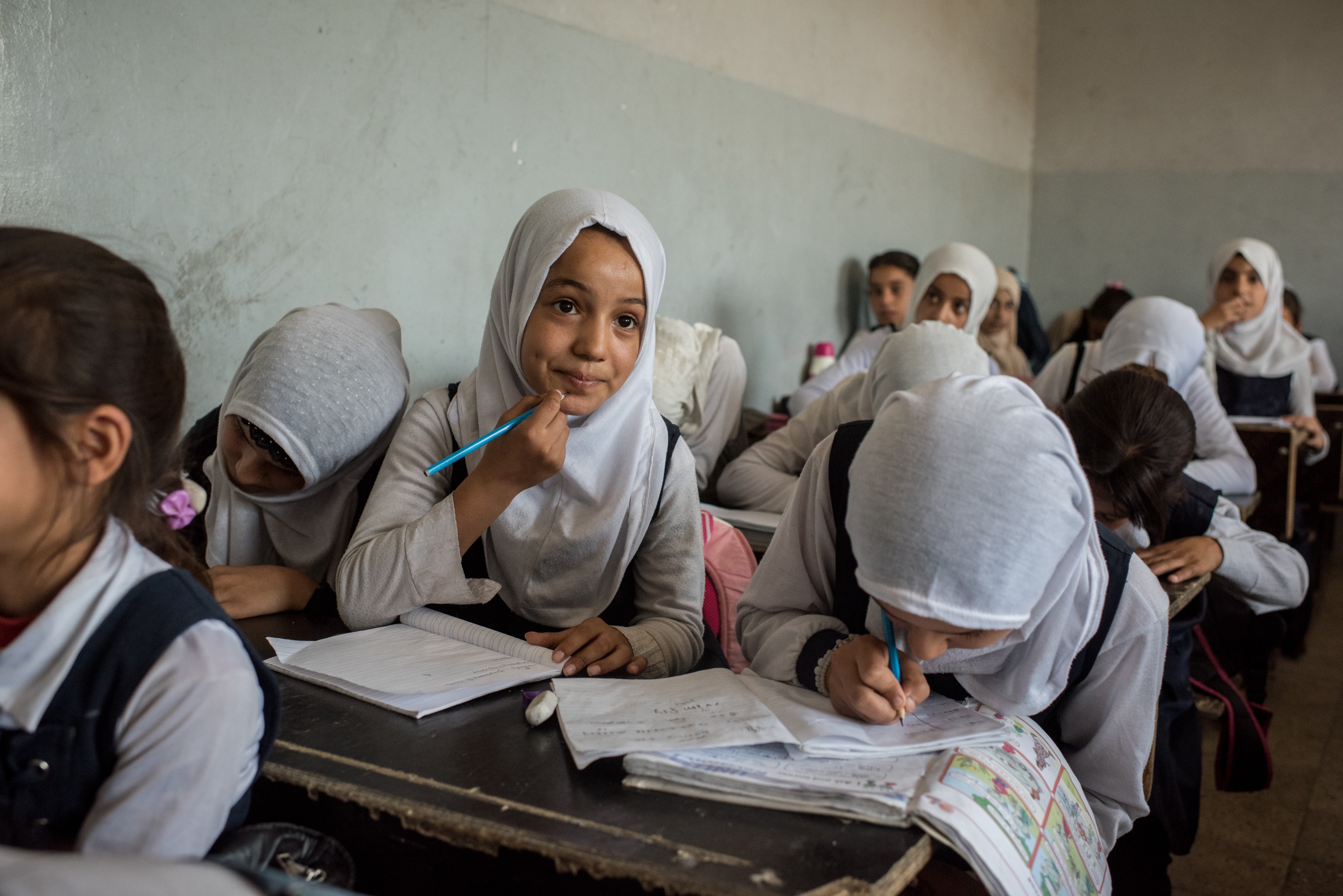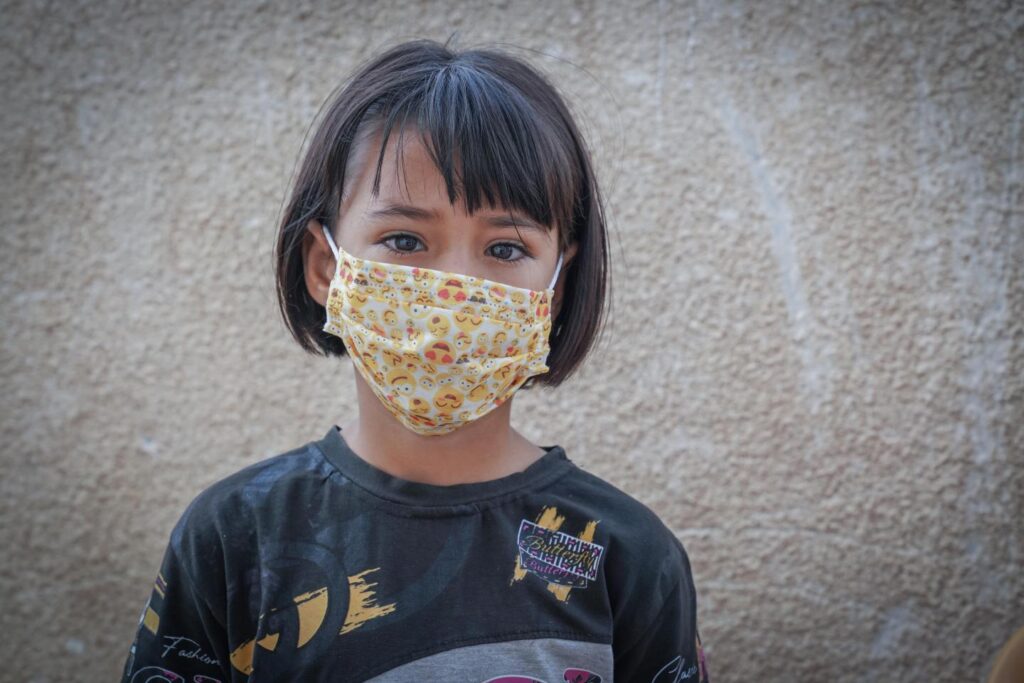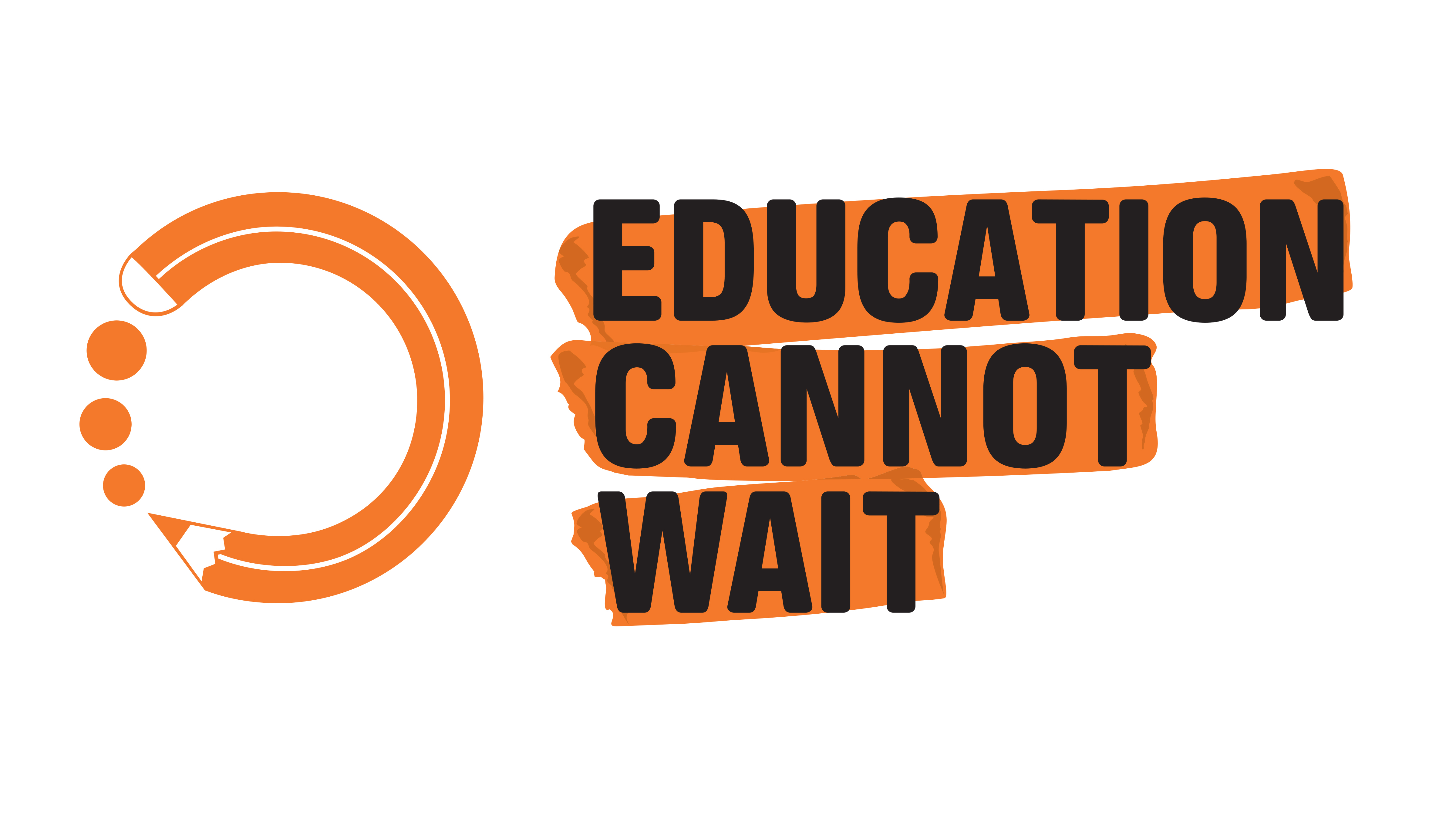Education Cannot Wait Announces US$12.5 Million Catalytic Grant in Iraq, Advancing Goals for Peaceful Development and Universal, Equitable Education

Fully funded US$48 million multi-year resilience programme will reach close to 200,000 displaced, refugee and returnee children and youth in response to protracted crises in Iraq and neighboring countries.
To support the Government of Iraq in its goals to achieve universal and equitable education – especially for forcibly displaced children and youth impacted by years of war and conflict – Education Cannot Wait (ECW) announced today a new multi-year resilience programme that will reach a total of 192,100 girls and boys.
To reach its targets, the three-year programme seeks to mobilize US$35.5 million in additional resources. The initial US$12.5 million catalytic seed-funding grant from ECW will be implemented by Save the Children in coordination with the Iraq’s Ministries of Education in Baghdad and Erbil The seed-funding grant will reach 36,500 children and youth over the next three years, 60 per cent of whom are girls.
“We call on donors, the private sector, philanthropic foundations, and national and international partners to urgently help fully fund this multi-year resilience programme, which will support Iraq in building back from years of war, the COVID-19 pandemic, and other factors pushing more and more children out of school,” said Yasmine Sherif, Director of Education Cannot Wait, the UN global fund for education in emergencies. “Education means a more peaceful, more prosperous future for the people of Iraq. Education means girls will learn to read and one day become teachers, doctors and engineers. It means boys can avoid recruitment into armed groups. It means refugees fleeing conflict in Syria and other neighboring countries can find stability, hope and resilience as the region seeks to build back from the ashes of war.”
“Save the Children welcomes the launch of the multi-year resilience programme in Iraq at a time when children are missing out on early childhood development and education opportunities due to the long-term impact of conflict combined with COVID-19. The programme will be an opportunity for a safe return to schools for crisis-affected children and youth in Iraq to access inclusive, and quality education to support their well-being and their learning outcomes. We look forward to having coordinated efforts of all education actors in Iraq and hope to bring sustainable changes to the Iraqi education system,” said Ishtiaq Mannan, Country Director Save the Children in Iraq.
Rising from the ashes
Prior to the Gulf War, Iraq had achieved near universal primary education. Years of crisis, armed conflict, out-of-date policies, economic challenges, and a series of sanctions have led to a deterioration of access, equity and quality of education.
School closures from COVID-19, limited remote learning access, a lack of teaching and learning materials, and other factors are pushing even more girls and boys out of school. Early childhood education enrollment is alarmingly low with just 1 out of 10 children attending pre-school.
It’s a system-wide challenge. By the sixth grade, girls represent less than half of the students in the education system. Only about 1 in 4 internally displaced children are able to access a formal education, while just 2 out of 10 returnees are back in the classroom. Schools were targeted during the years of war, and only 38 per cent of school infrastructure remains undamaged.
Efforts to control the spread of COVID-19 led to the closure of schools across the country in March 2020. Schools under the Center Ministry of Education remain closed, while primary and secondary schools under the Kurdish Region of Iraq started to reopen at the beginning of October 2020. The Government of Iraq offered technology-based solutions for learners, but many remote models are not feasible for those living in the camps. This leaves 7.4 million students without the means to access remote schooling.
Where education services are available, school resources and qualified teachers are overwhelmed by overcrowded classrooms and responding to the unique needs of learners that are struggling to overcome adversity, stress and other psychological factors after years of living in active war zones.
Building back better
The multi-year programme builds on ECW’s US$2.3 million COVID-19 education in emergency grant, and aims to support 250 schools and learning centers delivering formal and non-formal education, across the Center Iraq and Kurdistan regions of Iraq.
In all, 10 per cent of beneficiaries are Internally Displaced Persons (IDPs) in camps and 15 per cent in non-camp settings, 30 per cent are returnees, 35 per cent are Syrian refugees, and 10 per cent are from host communities. Girls and adolescent girls will make up 60 per cent of those to be reached across all education levels. Children living with disabilities will comprise 10 per cent of the overall girls and boys to be reached.
The programme will rebuild schools, promote access for continuous, inclusive and gender-responsive education services in crisis-affected communities, restore a sense of safety, protection, and social and emotional well-being, train and recruit qualified teachers, strengthen the capacity of both community-based and institutional school governance systems, and make sure schools, the government and other local partners have the resources they need to scale-up the impacts of the project and reach the targets outlined in the Sustainable Development Goals for universal, equitable education.
For Press Inquiries:
Anouk Desgroseilliers:
adesgroseilliers@un-ecw.org
+1-917-640-6820
Kent Page:
kpage@unicef.org
+1-917-302-1735



